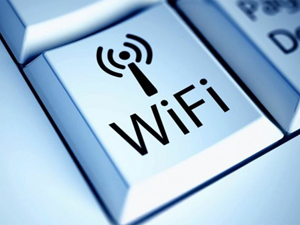



Date:25/11/16
 Unsecure Wi-Fi networks have proven to be a gateway to many attacks. More particularly, poorly configured access point encryption (or services that allow data to be sent without being encrypted) is one of the biggest threats to users.
Unsecure Wi-Fi networks have proven to be a gateway to many attacks. More particularly, poorly configured access point encryption (or services that allow data to be sent without being encrypted) is one of the biggest threats to users.
To illustrate the risks stemming from unencrypted traffic at wireless access points, Kaspersky researchers have conducted a research that answers questions like: What actually happens in practice? Is traffic always encrypted on public Wi-Fi networks? How does the situation differ from country to country?
What Kaspersky did was compare the situation with Wi-Fi traffic in different countries via data from their threat database. They also counted the number of both reliable and unreliable networks in these countries. It’s important to note that the countries they based the research on have more than ten thousand access points.
The team analysed statistics from Kaspersky Security Network (KSN) and went through nearly 32 million Wi-Fi hotspots accessed by the wireless adapters of KSN users.
Apparently, some 24.7 per cent of world-wide Wi-Fi hotspots don’t employ any encryption at all.
Furthermore, researchers explain that the WEP (Wired Equivalent Privacy) protocol for encryption of data transmitted over Wi-Fi signal is employed by 3.1 per cent of the analyzed access points. Unfortunately, this protocol was created a long time ago and is now outdated and unreliable. Malicious hackers only need a couple of minutes to break it.
The research was unveiled that about three-quarters of all access points used encryption based on the WPA (Wi-Fi Protected Access) protocol family. These protocols are considered to be the most secure, at least for now. A successful WPA hack would depend on the its settings and the complexity of the password set by the hotspot owner.
Korea has 47.9% of unsecured Wi-Fi access points and ranks in the first five countries. Francia (40.14%) and the US (39.31%) rate 9th and 12th in this list.
Kaspersky’s research shows that Germany is the most secure country in Western Europe, con 84.91% of access points secured via WPA/WPA2 protocol encryption.
Over 25% of Wi-Fi hotspots across the world are unsafe
 Unsecure Wi-Fi networks have proven to be a gateway to many attacks. More particularly, poorly configured access point encryption (or services that allow data to be sent without being encrypted) is one of the biggest threats to users.
Unsecure Wi-Fi networks have proven to be a gateway to many attacks. More particularly, poorly configured access point encryption (or services that allow data to be sent without being encrypted) is one of the biggest threats to users.To illustrate the risks stemming from unencrypted traffic at wireless access points, Kaspersky researchers have conducted a research that answers questions like: What actually happens in practice? Is traffic always encrypted on public Wi-Fi networks? How does the situation differ from country to country?
What Kaspersky did was compare the situation with Wi-Fi traffic in different countries via data from their threat database. They also counted the number of both reliable and unreliable networks in these countries. It’s important to note that the countries they based the research on have more than ten thousand access points.
The team analysed statistics from Kaspersky Security Network (KSN) and went through nearly 32 million Wi-Fi hotspots accessed by the wireless adapters of KSN users.
Apparently, some 24.7 per cent of world-wide Wi-Fi hotspots don’t employ any encryption at all.
Furthermore, researchers explain that the WEP (Wired Equivalent Privacy) protocol for encryption of data transmitted over Wi-Fi signal is employed by 3.1 per cent of the analyzed access points. Unfortunately, this protocol was created a long time ago and is now outdated and unreliable. Malicious hackers only need a couple of minutes to break it.
The research was unveiled that about three-quarters of all access points used encryption based on the WPA (Wi-Fi Protected Access) protocol family. These protocols are considered to be the most secure, at least for now. A successful WPA hack would depend on the its settings and the complexity of the password set by the hotspot owner.
Korea has 47.9% of unsecured Wi-Fi access points and ranks in the first five countries. Francia (40.14%) and the US (39.31%) rate 9th and 12th in this list.
Kaspersky’s research shows that Germany is the most secure country in Western Europe, con 84.91% of access points secured via WPA/WPA2 protocol encryption.
Views: 558
©ictnews.az. All rights reserved.Similar news
- Cellphone Use May Raise Cancer Risk
- Australian police pushes cyber safety education
- Vietnam aims to lead in e-government
- Senate Website Gets Hacked
- US builds net for cyber war games
- Japan enacts anti-computer virus law
- India passes law vs e-waste
- Anonymous Declares War On The City Of Orlando
- Microsoft highlights evolving dangers as online identity data proliferates
- Consumers want internet security to be provided by banks
- Government facilities targets of cyber attack
- South Korean web attacks might been war drill
- Sri Lanka to Establish National Passport Database to Increase Border Security
- Hi-tech crime agencies set to employ information security professionals
- Phone hacking and online campaign bring down the News of the World





















